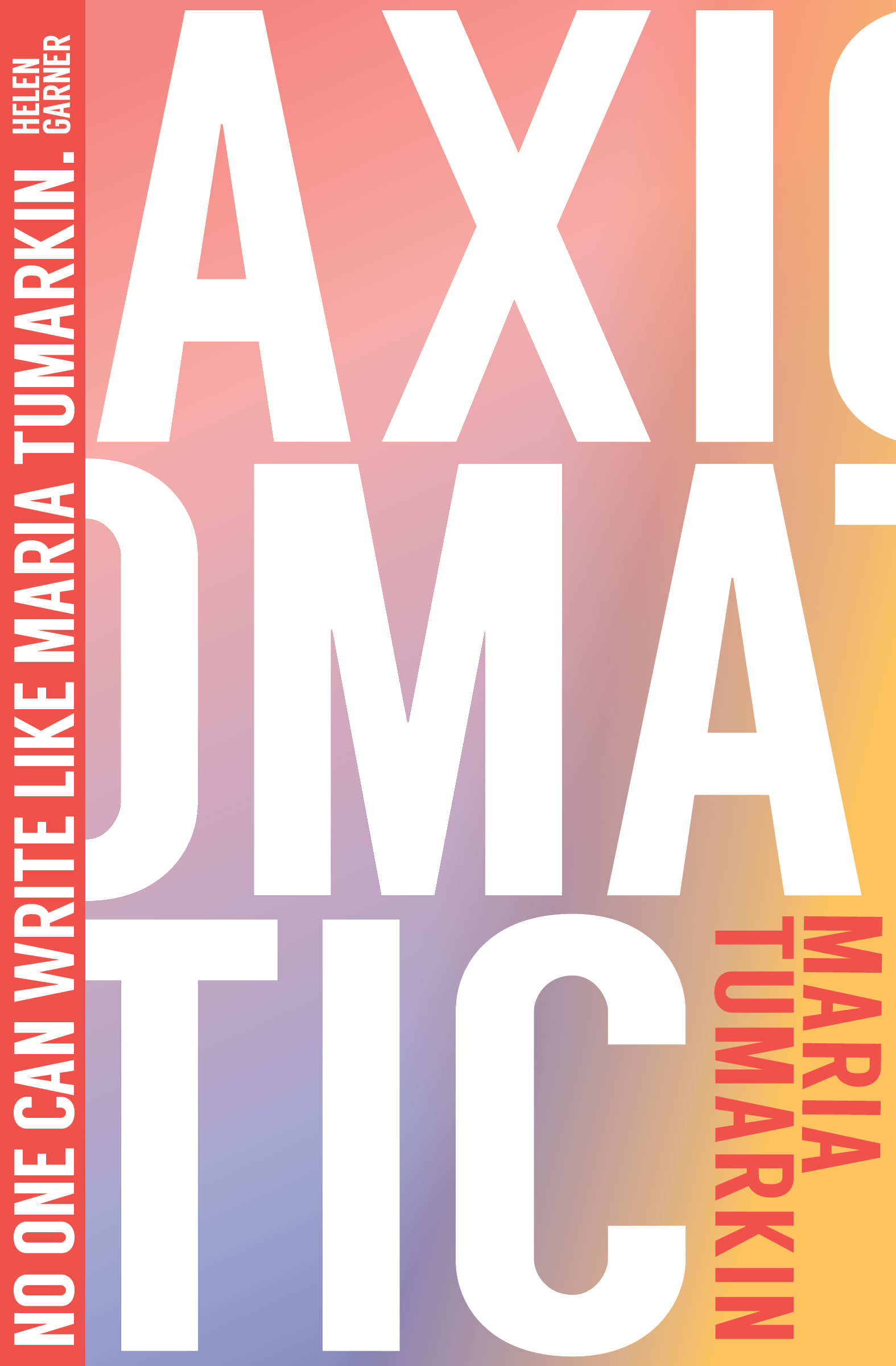
Format: 224 pp., paperback; Size: 5.25″ x 8″; Price: $16.95; Publisher: Transit Books; Number of People-Swallowing Pits in the Book: 2; Most Unexpected Celebrity Mentioned: Tim Roth; Number of Previous Books by Author: 3; Clause on Back of Book: “Axiomatic introduces an unforgettable voice”; Representative Passage: “One of the things about coming to this world from the Eastern European elsewhere (not that it matters much which elsewhere the elsewhere is) is that words do not often feel powerful in the world of Australia we’ve come to. Which is fine really. We have made our peace with this, accepted it, with gratitude almost, because we judged the well-known (to us) alternative—a world in which poets and their families were persecuted and killed for their words mattering too much—to be an evil much greater. But perhaps I was wrong about this new world. Looking in all the wrong places perhaps.”
Central Question: How do we survive suffering?
Social critic Maria Tumarkin’s latest book, Axiomatic, is an elusive text. It’s fast, cunning and painfully intelligent. While reading, I found the force of Maria Tumarkin’s project mesmerizing. In trying to talk about the book, analysis fails. What has she done? How did she do it? Unclear; better read it again.
Axiomatic is about time, death, and trauma. Those are large topics—big enough to befuddle a lesser writer, or make her turn to particularity as a way to make sense. Instead, Tumarkin fractures her topics into small enough pieces that she can reassemble them in kaleidoscopic fashion, allowing for a shifting, colorful, and holistic approach to her subjects. Each of the five essays in Axiomatic is obliquely titled after a cliché about time—“History repeats itself,” “You can’t enter the same river twice,” et cetera. Each focuses on a different cluster of case studies and ideas, although the book never exactly cordons its ideas behind its sections.
These essays are linked by dizzying lines of flight, interlinking inquiries that connect disparate topics—parenting, suicide, kidnapping, and myriad others—into an exploration of history, memory, and time. Axiomatic spools out its specific, insightful view of life on earth one complex paragraph at a time, but the rebar of its endeavor is storytelling. It’s not the safe, simply patterned storytelling we are accustomed to, but a kaleidoscopic set of interwoven threads, from an O. Henrian story of young Russians researching their families, to the rise and fall of Australian food entrepreneuse Nahji Chu, to...
You have reached your article limit
Sign up for a digital subscription and continue reading all new issues, plus our entire archives, for just $1.50/month.
Already a subscriber? Sign in




